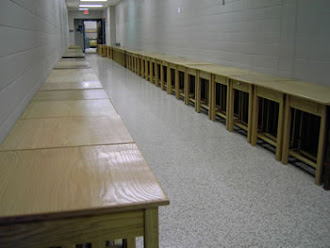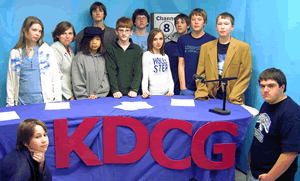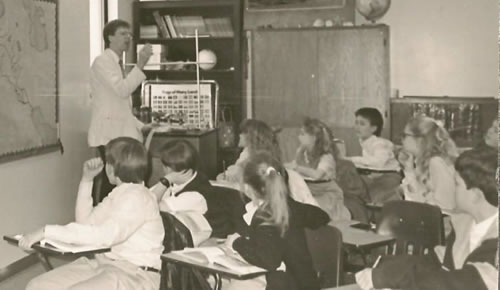My response was negative for two reasons. First, the obvious reason. I was negative towards the "clean shop" and the new computer lab concept because I did not know how to use a computer. I did not own a computer at home nor did I use a computer at school. At school I had a computer on my desk but I didn't know how to use it, maneuver the mouse or check email. There was no tech support, but if there was, I would have had to walk down to their office to get assistance turning my computer on. But, what would I do then? Walk back down to the tech office and ask where my email was? It was easier just to walk to the teacher work room and pick up the hard copy in my mail box.
This was during the transition period between paper copies and email copies. During this transition the school would put a hard copy in our teacher mail boxes, and also, send us a copy by email. Back in the old days every piece of information was copied on a piece of paper and put in our teacher's mail boxes. I occasionally got calls from the office to check my box because it was full and they had more very important stuff to put in my box. I usually checked my box on pay day, though. Today they say, "Didn't you read the email?" A few years ago when I was shutting down for the summer I noticed I had 800 unread emails. I had no idea what to do with them at that time. Another similarity between my paper mail box and my email box is they both have a "trash" can.
My second reason, and my only correct reason, for rejecting the salesmen's alarm cry of, "The computers are coming! The computers are coming!!" was very simple. Computers could not eliminate basic industrial needs. Computers could not creatively manipulate material because they are material themselves. Our society is based on industry, not on computers. Computers can assist industry, but computers can not replace industry. If we lose computers we will have to go back to paper copies, a slower process time, a slower life, etc. But, if we lose industry we will lose everything our society knows. Without industry we would come very close to becoming a third world country. Remember the United States became wealthy and powerful with industry long before industry produced the computer.
I made it clear in my response to salesmen, and the futuristic educators that soon followed, that industry and technology were not synonyms.
Nonetheless, they soon began to refer to my Industrial Arts class as "Technology Education" or, "Tech Ed". In response I began to call it "shop" to maintain a separate identity from computers and computer labs. When I refer to my class as "shop class" people want to correct me. They figure I missed the last school bus route to the future. They only correct me once, though, because I feel obligated to provide them with my insight that is based on these simple concepts:
- Shop Vocabulary Lesson: Industry and Technology are not synonyms.
- Shop Economics 101: Our economy and society are based on industry not computers.
- Shop History Lesson: Industry produced the computer not vice verse.
- Shop Educational Principle: Teaching someone to move a mouse on a computer is not the same thing as training an electrician, a carpenter, a brick mason, a stone mason, or someone who hangs sheetrock.
- Shop Psychology Lesson: Educators are realizing the importance of hand on manipulation of material in the physical world. The visual observation of cyber space does not produce the same learning process.
Now, 20 years after the first warning that computers were going to change everything, we still live in houses, buy furniture, call the electrician or plumber, and build and sell many things including computers. One thing that has happened is the education systems has failed to avoid being sucked into the carpeted computer labs. Research is now sending us back into the traditional shop. We could have avoided this. We could have embraced technology with out flushing the shop program.
Today, I have embraced the computer at school and at home. We have computers running in this middle school shop (often covered in dust and grease!) for a mill, a lathe, podcasting, video production and CAD. We have plans to add a few more "industrial" related activities with computers next year. At home I have six computers running most of the time. Four are on my double desk in my office. Two of these are committed full time to running the two robotic CD burners/printers I use. Our house is wireless. When my boys come home with their laptops, and the girlfriends follow with their lap tops, we could easily have ten computers operating at a time. If someone can't get online with a computer we get out our ipod itouches.
But, if I need to remodel the house, build a piece of furniture, fix the toilet or wire some can lighting in the ceiling, I go into my garage which has been converted to a shop (with no computers!) and get the job done.
Read the latest research that supports this kind of thinking:
http://www.sreb.org/publications/2008/08V12_State_Leaders_Forum_Newsletter.pdf
Below is one of our high school shop projects from the 1990's. We used no computers but drank a lot of Mt. Dew.

Mr. Wiemers
http://mrwiemersshop.com











No comments:
Post a Comment